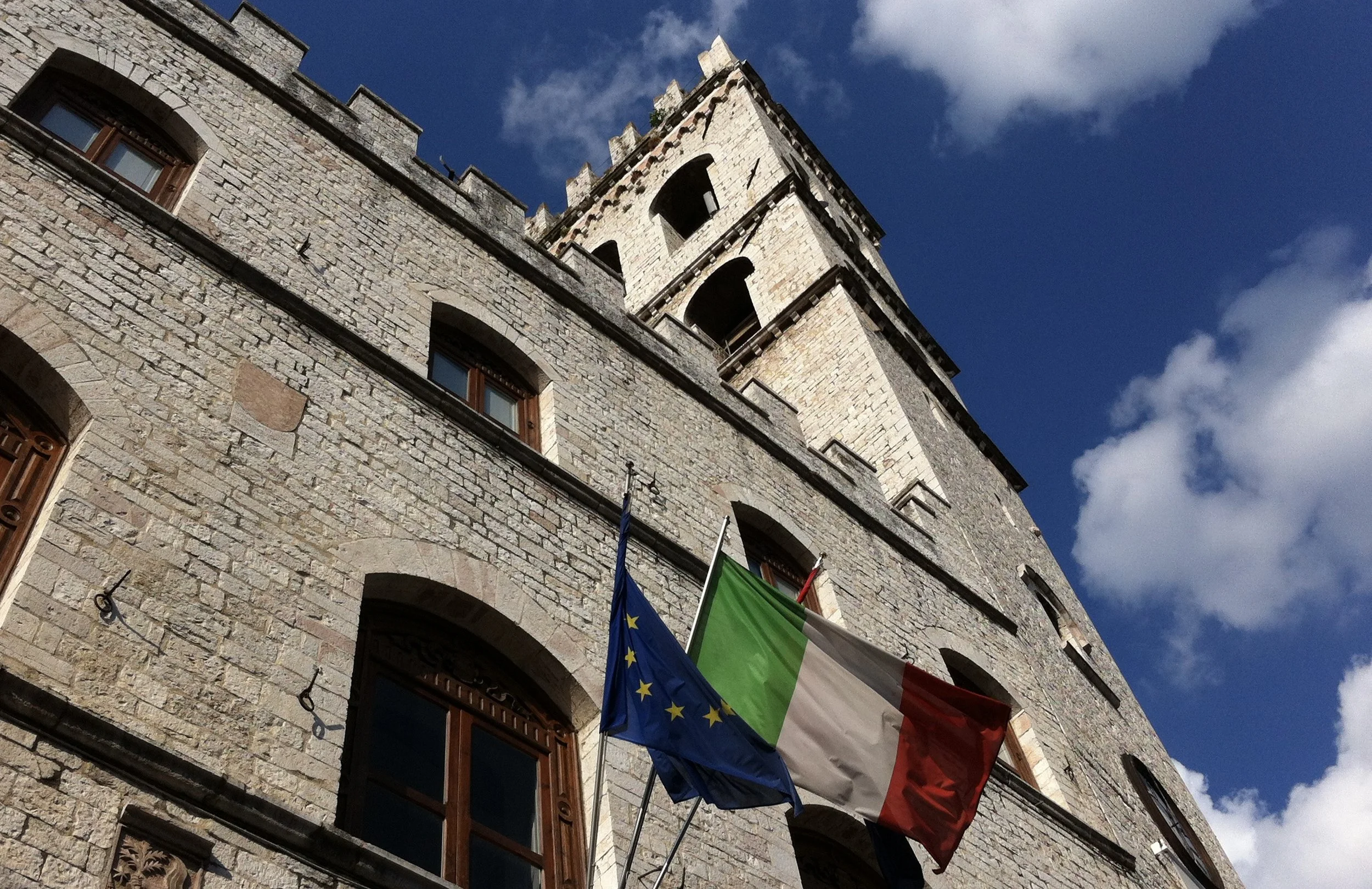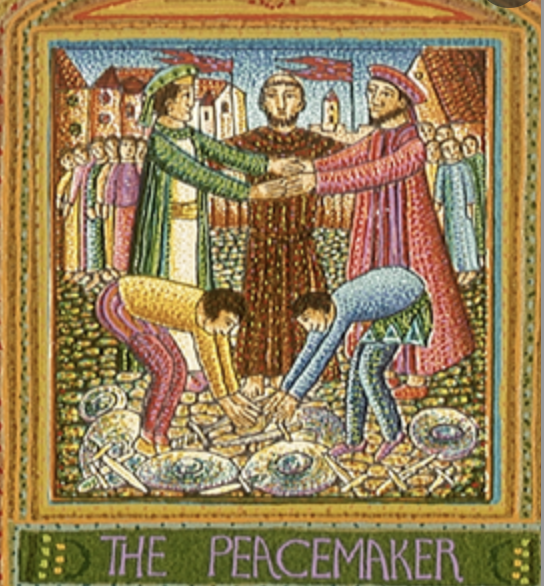[84]
HE MAKES PEACE BETWEEN THE BISHOP AND MAYOR OF ASSISI
ADDING A VERSE TO THE CANTICLE
Francis of Assisi: Early Documents, Vol. II, Assisi Compilation, 187-178
At that same time when he lay sick, the bishop of the city of Assisi at the time excommunicated the podestà. In return, the man who was then podestà was enraged, and had this proclamation announced, loud and clear, throughout the city of Assisi: no one was to sell or buy anything from the bishop, or to draw up any legal document with him. And so they thoroughly hated each another.
John Augustus Swanson, from Secular Franciscans and San Luis Rey Fraternity
Although very ill, blessed Francis was moved by piety for them, especially since there was no one, religious or secular, who was intervening for peace and harmony between them. He said to his companions: "It is a great shame for you, servants of God, that the bishop and the podestà hate one another in this way, and that there is no one intervening for peace and harmony between them."
And so, for that reason, he composed one verse for the Praises:
Praised be by You, my Lord, through those who give pardon for Your love,
and bear infirmity and tribulation.
Blessed are those who endure in peace
for by You, Most High, they shall be crowned.
Afterwards he called one of his companions and told him: "Go to the podestà and, on my behalf, tell him to go to the bishop's residence together with the city's magistrates and bring with him as many others as he can."
And when the brother had gone, he said to two of his other companions: "Go and sing the Canticle of Brother Sun before the bishop, the podestà, and the others who are with them. I trust in the Lord that He will humble their hearts and they will make peace with each other and return to their earlier friendship and love."
When they had all gathered in the piazza inside the cloister of the bishop's residence, the two brothers rose and one of them said: "In his illness, blessed Francis wrote the Praises of the Lord for His creatures, for His praise and the edification of his neighbor. He asks you, then, to listen to them with great devotion." And so, they began to sing and recite to them. And immediately the podestà stood up and, folding his arms and hands with great devotion, he listened intently, even with tears, as if to the Gospel of the Lord. For he had a great faith and devotion toward blessed Francis.
When the Praises of the Lord were ended, the podestà said to everyone: "I tell you the truth, not only do I forgive the lord bishop, whom I must have as my lord, but I would even forgive one who killed my brother or my son." And so he cast himself at the lord bishop's feet, telling him: "Look, I am ready to make amends to you for everything, as it pleases you, for the love of our Lord Jesus Christ and of his servant, blessed Francis."
Taking him by the hands, the bishop stood up and said to him: "Because of my office humility is expected of me, but because I am naturally prone to anger, you must forgive me." And so, with great kindness and love they embraced and kissed each other.
And the brothers marveled greatly, considering the holiness of blessed Francis, that what he had foretold about peace and harmony between them had been fulfilled, to the letter. All the others who were present and heard it took it for a great miracle, crediting it to the merits of blessed Francis, that the Lord had so quickly visited them, and that without recalling anything that had been said, they returned to such harmony from such scandal.
Therefore we who were with blessed Francis bear witness that always whenever he would predict "such-and-such a thing is or will be this way," it happened almost to the letter. We have seen with our own eyes what would be too long to write down or recount.


